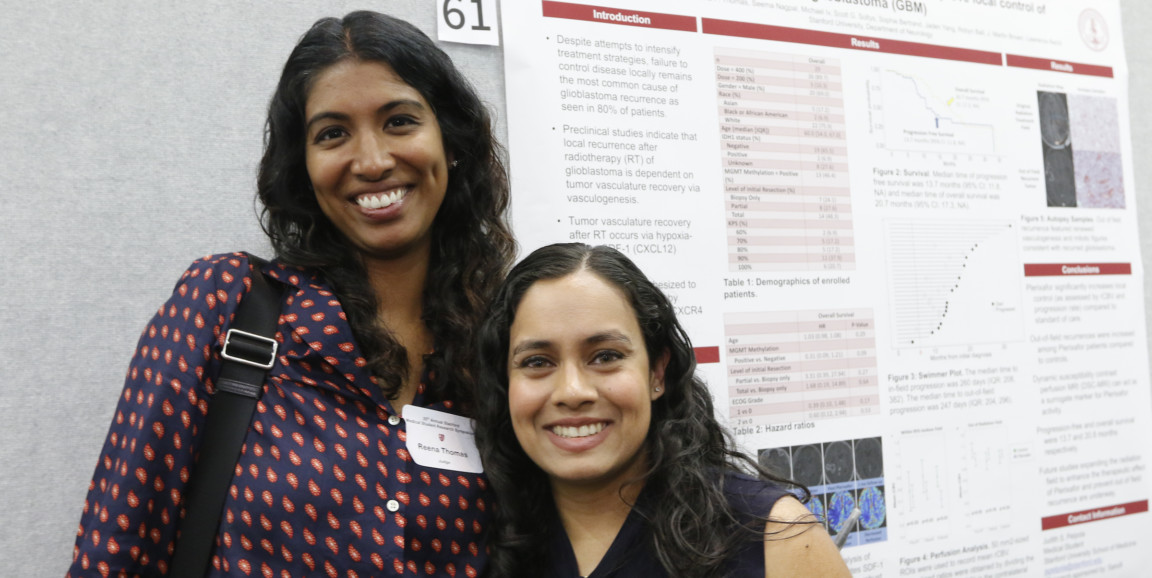What a medical student can learn from a research project goes far beyond the project topic itself. Students learn about their area of focus, while also learning to navigate the landscape of academic medical research and building relationships to support their scholarship, according to organizers at this year's Medical Student Research Symposium.
The 64 Stanford medical students who presented posters of their research projects at the symposium dedicated months, and in some cases years, to investigation and collaboration across a variety of specialties. I attended and wrote about it for Inside Stanford Medicine.
Second-year medical student Judith Pelpola’s project investigating therapies to reduce the recurrence of glioblastoma, a deadly brain tumor, led her from imaging, to immunotherapy, to autopsy in her work to understand her topic.
“Radiation maps, MRI, autopsy specimens with pathology — I learned about all these different fields and how everyone comes together to treat this one cancer that’s been so intractable,” Pelpola said. “That was probably the biggest revelation for me. I had never realized that cancer required so many different fields to target it.”
Faculty mentors serve as guides for student-researchers navigating the many aspects and challenges that come with complex projects, while also progressing through medical school.
Pelpola’s research project was overseen by her mentor Reena Thomas, MD, PhD, clinical assistant professor of neurology and neurological sciences and of neurosurgery. Thomas, shown on the left above, first welcomed Pelpola, who had been an undergraduate at Stanford, into her lab during the summer before Pelpola's first year of medical school at Stanford.
“She was able to continue the whole way through,” Thomas said. “And it was nice because she was able to see the progression of her own education as it tied into her research as well. I remember the summer we were doing histology work, which she understands it much better at a different level, because she did it hands-on.”
For Pelpola, the Medical Scholars Research Program was an opportunity like no other, providing both financial support and faculty mentorship.
“My friends who are at other schools, they have to do research, but they don’t get this level of mentorship and support to do that,” Pelpola said. “It’s a fantastic program.”
Photo by Paul Sakuma




